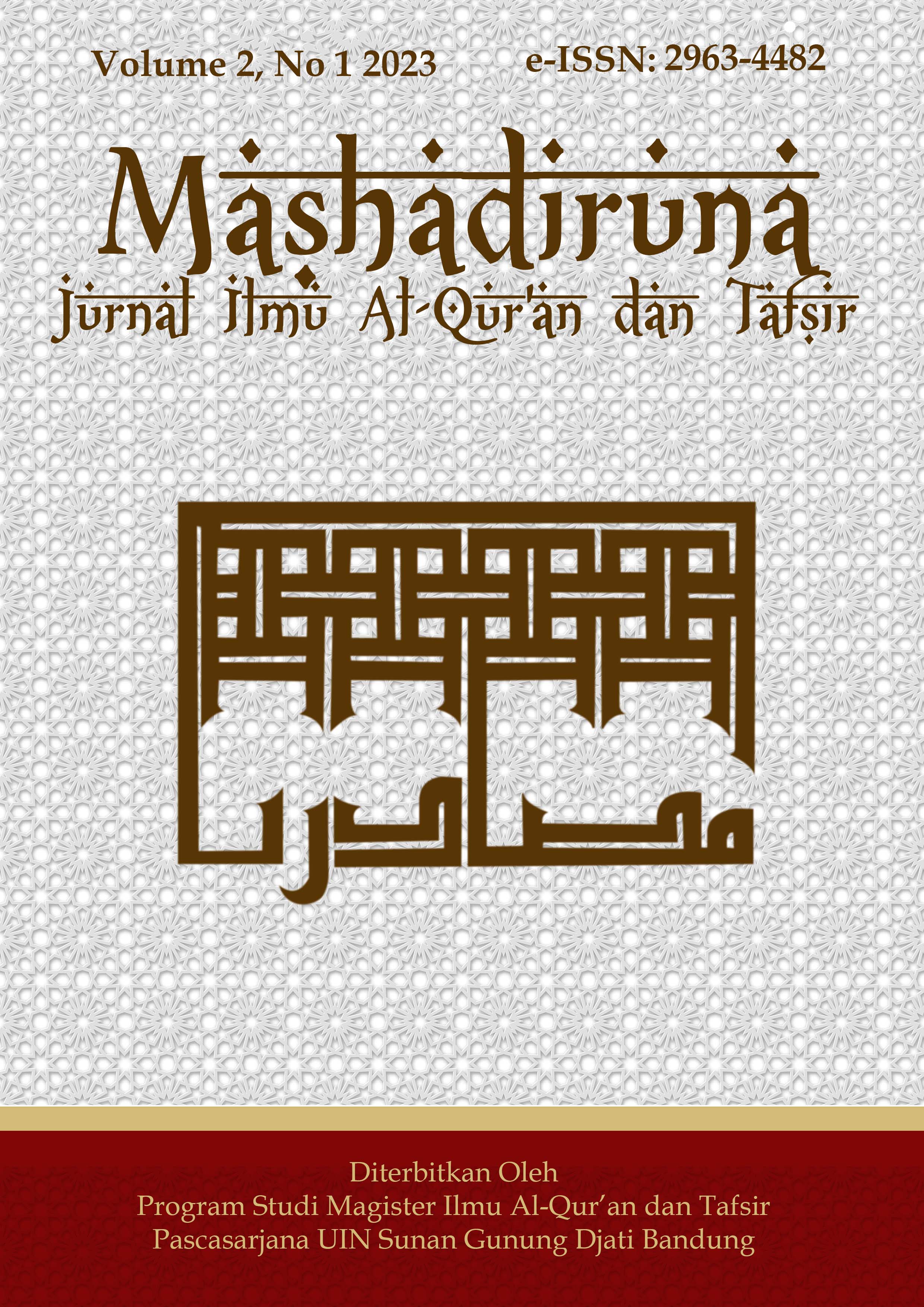Empowerment of Rural Communities from the Perspective of the Quran: Towards Social Entrepreneurship through Village-Owned Enterprises
DOI:
https://doi.org/10.15575/mjiat.v2i2.25303Keywords:
Rural Community Empowerment, The Quran, Social Entrepreneurship, Village-Owned Enterprises (BUMDes), Rural PovertyAbstract
Poverty in Indonesia is often a concentrated issue in rural areas. Although the government has provided various incentives to improve the rural economy, the results have not brought significant change. This is due to the incomplete effectiveness of rural community empowerment management, resulting in a lack of creativity and innovation in villages. This article aims to explore the concept of community empowerment from the perspective of the Quran, using a social entrepreneurship model through Village-Owned Enterprises (BUMDes) as a solution to address rural poverty. The social entrepreneurship model is chosen because of its integration of social and economic issues and its invitation for the entire village community to participate in this change. Using a descriptive-analytic approach based on the thematic interpretation of the Quran, this article concludes that the Quran provides guidelines for community empowerment that include at least three crucial aspects: 1) opportunity, 2) capacity, and 3) authority. These three aspects form the basis for the implementation of social entrepreneurship through BUMDes in a way that has the potential and proportionality to empower rural communities. One example of a village that has successfully implemented this model is Kertayasa Village. To date, Kertayasa Village has achieved relative success in building social entrepreneurship through BUMDes. The success of this social entrepreneurship model reflects an approach that prioritizes social welfare collectively over individual economic gains.
References
Al-Maraghi>, A. I. M. (n.d.). Tafsi>r al-Maraghi (28th ed.). Mesir: Sharikah al-Maktabah.
Al-Qardhawi, Y. (2001). Nata’âmal ma’a al-Qur`ân. Beirut: Muassasah al-Risâlah.
Al-Qurthubi, M. bin A. abi> B. A. ‘Abdullah. (1384). Al-Ja>mi’ li Ah}ka>m al-Qur’a>n. Qahirah: Da>r al-Kutu>b al-Mishri>.
Al-ZuḥailÄ«, W. (1998). Al-TafsÄ«r al-MunÄ«r fÄ« al- ‘AqÄ«dah wa al-Sharī’ah wa al-Manhaj. Damaskus: DÄr al-Fikr.
Baidhawy, Z. (2007). Islam Melawan Kapitalisme!: Konsep-konsep Keadilan Dalam Islam. Resist Book.
Bansal, S., Garg, I., & Sharma, G. D. (2019). Social entrepreneurship as a path for social change and driver of sustainable development: A systematic review and research agenda. Sustainability, 11(4), 1091.
Cardella, G. M., Hernández-Sánchez, B. R., Monteiro, A. A., & Sánchez-GarcÃa, J. C. (2021). Social entrepreneurship research: Intellectual structures and future perspectives. Sustainability, 13(14), 7532.
Chapra, U. (2011). Visi Islam dalam Pembangunan Ekonomi: Menurut Maqasid Asy-Syariah. PIA Basri, Edition. Solo: Al–Hambra.
Humas Setkab RI. (2022). Evaluasi.
Ibrahim. (2020). Productivity the Village Owned Enterprises to Improve the economic Community of Gold Mining Areas in Sumbawa Island Indonesia. IJSTR, 9(2).
Ichwan, M. N. (2002). Literatur Tafsir Qur’an Melayu-Jawi di Indonesia: Relasi Kuasa, Pergeseran dan Kematian. Visi Islam Jurnal Ilmu-Ilmu Keislaman, 1(1).
Ishaq, A. bin. (2003). Lubâb al-Tafsîr min Ibn Katsîr (A. Ghoffar, Ed.). Bogor: Pustaka Imam Syafi’i.
Iswara, M. A. (n.d.). Ekonomi.
Mardani, D. A. (2019). Spiritual Entrepreneurship Dalam Pemberdayaan Ekonomi Umat (Studi Terhadap Tarekat Idrisiyah Pageningan Tasikmalaya). Jurnal Ekonomi Syariah, 4(2).
Muryanti, M. (2020). Towards social entrepreneurship in the village through village-owned enterprises. Society, 8(1), 163–174.
Permana, A. F. (2021). Konseptualisasi Strategi Pemberdayaan Ekonomi Masyarakat Desa. J-EBI: Jurnal Ekonomi Bisnis Islam, 1(1).
Pranadji, T., & Anugrah, I. S. (2021). Turning point the concept of rural development in Indonesia from top-down to bottom-up strategy. IOP Conference Series: Earth and Environmental Science, 892(1), 12079. IOP Publishing.
Razak, M. R. R. (2020). Role of village-owned enterprises in farming community empowerment.
Ridwan, A. (2018). Sosiologi industri: Transformasi menuju masyarakat Post-Industri. CV. Pustaka Setia Bandung.
Rohim, R., Asmuni, A., & Supriyadi, I. (2021). Social Entrepreneurship: Village Owned Enterprises Development Strategy. E-PROCEEDING STIE MANDALA, 100–105.
Saeful, A. (2020). Konsep Pemberdayaan Masyarakat Dalam Islam. Syar’ie: Jurnal Pemikiran Ekonomi Islam, 3(3), 1–17.
SafeÃ, A. A., & Herdiana, D. (2021). Pengembangan kesejahteraan masyarakat berbasis kewirausahaan Sosial: Studi multikasus di Provinsi Bali, Nusa Tenggara Timur dan Maluku Utara. Lembaga Penelitian dan Pengabdian Masyarakat UIN Sunan Gunung Djati.
Setyowati, D. (2022). Berita:
Shihab, M. Q. (2002). Tafsir al-Misbah. In Jakarta: Lentera Hati (Vol. 2).
Sofyani, H., Atmaja, R., & Rezki, S. B. (2019). Success factors of village-owned enterprises (BUMDes) performance in indonesia: An exploratory study. Journal of Accounting and Investment, 20(2), 44–58.
Statistik, B. P. (2021). Profil Kemiskinan Indonesia.
Suhirman, S. (2021). Pola Pengelolaan BUMDes Berbasis Syariah Sebagai Alternatif Pemberdayaan Usaha Mikro Masyarakat Perdesaan. IQTISHADIA Jurnal Ekonomi & Perbankan Syariah, 8(1), 1–21.
Tabari, I. J. (2000). Jami’ al-Bayan fi tafsir ayi Alquran 1 ed. (14th ed.). Beirut: Muassasah al-Risalah.
Temalagi, S., Silooy, M., Isnawati, I., Pattinaja, E. M., & Haryadi, D. (2022). Implementation of Village Apparatus Financial Accounting Applications: Challenges and Opportunities. Budapest International Research and Critics Institute (BIRCI-Journal): Humanities and Social Sciences, 5(1).
Tenrinippi, A. (2019). Kewirausahaan Sosial Di Indonesia (Apa, Mengapa, Kapan, Siapa Dan Bagaimana). Meraja Journal, 2(3), 25–40.
Zulkarnaini, Z., & Mashur, D. (2019). Development Of Local Economic Independence Through Optimizing Of Village Fund Management. Iapa Proceedings Conference, 298–302.
Downloads
Published
Issue
Section
License
Authors who publish with this journal agree to the following terms:
- Authors retain copyright and grant the journal right of first publication with the work simultaneously licensed under a Creative Commons Attribution License that allows others to share the work with an acknowledgment of the work's authorship and initial publication in this journal.
- Authors are able to enter into separate, additional contractual arrangements for the non-exclusive distribution of the journal's published version of the work (e.g., post it to an institutional repository or publish it in a book), with an acknowledgment of its initial publication in this journal.
- Authors are permitted and encouraged to post their work online (e.g., in institutional repositories or on their website) prior to and during the submission process, as it can lead to productive exchanges, as well as earlier and greater citation of published work (See The Effect of Open Access).
